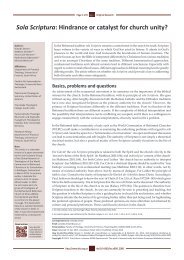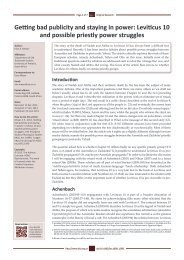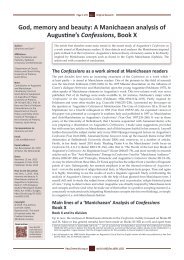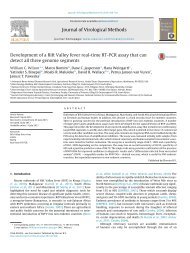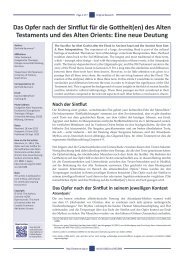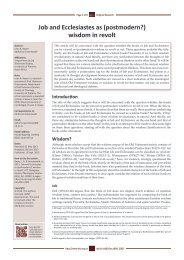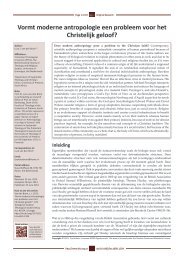View/Open - Repository.up.ac.za - University of Pretoria
View/Open - Repository.up.ac.za - University of Pretoria
View/Open - Repository.up.ac.za - University of Pretoria
You also want an ePaper? Increase the reach of your titles
YUMPU automatically turns print PDFs into web optimized ePapers that Google loves.
THE LAW OF PURCHASE AND SALE<br />
1063<br />
beth. . .’ (quoted in para [2]). On the f<strong>ac</strong>ts, the S<strong>up</strong>reme Court <strong>of</strong><br />
Appeal found that both parties had intended that the success <strong>of</strong><br />
the agreement would depend wholly on the proposed subdivision,<br />
which was a t<strong>ac</strong>it term <strong>of</strong> their agreement (para [12], with<br />
reference to Alfred McAlpine & Son (Pty) Ltd v Transvaal Provincial<br />
Administration 1974 (3) SA 506 (A); Delfs v Kuehne & Nagel<br />
(Pty) Ltd 1990 (1) SA 822 (A); Wilkens NO v Voges 1994 (3) SA<br />
130 (A)). Accordingly, once such intention is established, it is<br />
irrelevant whether it was expressly agreed or specifically stated<br />
that the agreement was subject to such a suspensive condition.<br />
The court referred to Wilkens v Voges (s<strong>up</strong>ra) at 144C–D:<br />
‘A t<strong>ac</strong>it term in a written contr<strong>ac</strong>t, be it <strong>ac</strong>tual or imputed, can be the<br />
corollary <strong>of</strong> the express terms — reading, as it were, between the lines<br />
— or it can be the product <strong>of</strong> the express terms read in conjunction<br />
with evidence <strong>of</strong> admissible surrounding circumstances. Either way, a<br />
t<strong>ac</strong>it term, once found to exist, is simply read or blended into the<br />
contr<strong>ac</strong>t: as such it is ‘‘contained’’ in the written deed. Not being an<br />
adjunct to but an integrated part <strong>of</strong> the contr<strong>ac</strong>t, a t<strong>ac</strong>it term does not<br />
in my opinion fall foul <strong>of</strong> either the clause in question or the [Alienation<br />
<strong>of</strong> Land] Act’ (original emphasis).<br />
The court concluded that the agreement complied with section<br />
2(1) <strong>of</strong> the Alienation <strong>of</strong> Land Act.<br />
It is clear that the S<strong>up</strong>reme Court <strong>of</strong> Appeal’s appro<strong>ac</strong>h is one<br />
<strong>of</strong> substance over form. It would be the exception rather than the<br />
rule that a deed <strong>of</strong> alienation will be deemed null and void on<br />
technical grounds (see, for example, Herselman; Chisnall and<br />
Chisnall v Sturgeon and Sturgeon 1993 (2) SA 642 (W); Scheepers<br />
v Strydom 1994 (3) SA 101 (A); Ten Brink NO v Motala 2001<br />
(1) SA 1011 (D); DJ Lötz ‘Ten Brink NO v Motala 2001 (1) SA 1011<br />
(D) — Koopkontrak van Grond — Kontrakspartye en Formaliteite<br />
waar ’n Verteenwoordiger Namens die Koper Optree’ (2002) 35<br />
De Jure 361). However, it remains open to question whether the<br />
appro<strong>ac</strong>h in Stalwo promotes Parliament’s aims when it comes to<br />
formalities.<br />
Description <strong>of</strong> Future Sectional Title Unit<br />
The problems regarding the description <strong>of</strong> a future unit in a<br />
proposed sectional title scheme development were again<br />
addressed in Rasmussen & another v Clear Mandate Properties<br />
CC & others 2008 (3) SA 147 (W) (see also Kendrick v Community<br />
Development Board 1983 (4) SA 532 (W); Den Dunnen v Kreder<br />
1985 (3) SA 616 (T); Erf 441 Robertsville Property CC v New



